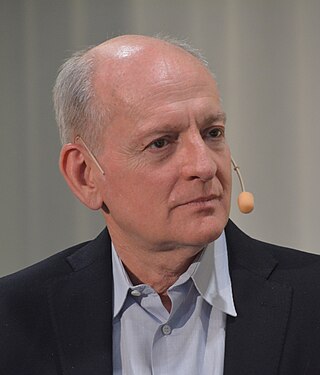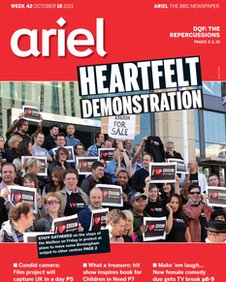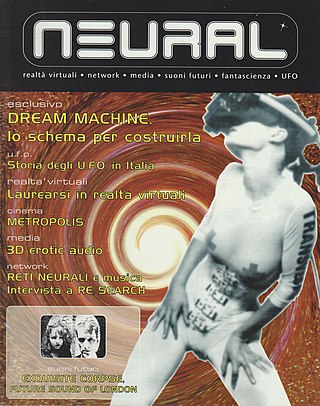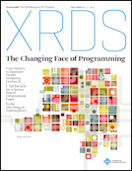
Baen Books is an American publishing house for science fiction and fantasy. In science fiction, it emphasizes space opera, hard science fiction, and military science fiction. The company was established in 1983 by science fiction publisher and editor Jim Baen. After his death in 2006, he was succeeded as publisher by long-time executive editor Toni Weisskopf.
Electronic publishing includes the digital publication of e-books, digital magazines, and the development of digital libraries and catalogues. It also includes the editing of books, journals, and magazines to be posted on a screen.
The University of California, Berkeley College of Engineering is the engineering school of the University of California, Berkeley. The college occupies fourteen buildings on the northeast side of the main campus and also operates the 150-acre (61-hectare) Richmond Field Station. Established in 1931, the college is considered to be one of the most prestigious and selective engineering schools in both the nation and the world.

The British Computer Society (BCS), branded BCS, The Chartered Institute for IT, since 2009, is a professional body and a learned society that represents those working in information technology (IT), computing, software engineering and computer science, both in the United Kingdom and internationally. Founded in 1957, BCS has played an important role in educating and nurturing IT professionals, computer scientists, software engineers, computer engineers, upholding the profession, accrediting chartered IT professional status, and creating a global community active in promoting and furthering the field and practice of computing.

Stuart Jonathan Russell is a British computer scientist known for his contributions to artificial intelligence (AI). He is a professor of computer science at the University of California, Berkeley and was from 2008 to 2011 an adjunct professor of neurological surgery at the University of California, San Francisco. He holds the Smith-Zadeh Chair in Engineering at University of California, Berkeley. He founded and leads the Center for Human-Compatible Artificial Intelligence (CHAI) at UC Berkeley. Russell is the co-author with Peter Norvig of the authoritative textbook of the field of AI: Artificial Intelligence: A Modern Approach used in more than 1,500 universities in 135 countries.

Lynn Ann Conway is an American computer scientist, electrical engineer and transgender activist.

Harold Pender was an American academic, author, and inventor. He was the first Dean of the University of Pennsylvania's Moore School of Electrical Engineering, a position he held from the founding of the School in 1923 until his retirement in 1949. During his tenure, the Moore School built the ENIAC, the first general-purpose electronic digital computer, and began construction of its successor machine, the EDVAC. Pender also proposed the Moore School Lectures, the first course in computers, which the Moore School offered by invitation in the summer of 1946.

Barbara Liskov is an American computer scientist who has made pioneering contributions to programming languages and distributed computing. Her notable work includes the introduction of abstract data types and the accompanying principle of data abstraction, along with the Liskov substitution principle, which applies these ideas to object-oriented programming, subtyping, and inheritance. Her work was recognized with the 2008 Turing Award, the highest distinction in computer science.
An online magazine is a magazine published on the Internet, through bulletin board systems and other forms of public computer networks. One of the first magazines to convert from a print magazine format to an online only magazine was the computer magazine Datamation. Some online magazines distributed through the World Wide Web call themselves webzines. An ezine is a more specialized term appropriately used for small magazines and newsletters distributed by any electronic method, for example, by email. Some social groups may use the terms cyberzine and hyperzine when referring to electronically distributed resources. Similarly, some online magazines may refer to themselves as "electronic magazines", "digital magazines", or "e-magazines" to reflect their readership demographics or to capture alternative terms and spellings in online searches.

Noel Sharkey is a computer scientist born in Belfast, Northern Ireland. He is best known to the British public for his appearances on television as an expert on robotics; including the BBC Two television series Robot Wars and Techno Games, and co-hosting Bright Sparks for BBC Northern Ireland. He is emeritus professor of artificial intelligence and robotics at the University of Sheffield.

Computer Weekly is a digital magazine and website for IT professionals in the United Kingdom. It was formerly published as a weekly print magazine by Reed Business Information for over 50 years. Topics covered within the magazine include outsourcing, security, data centres, information management, cloud computing, and mobile computing to computer hacking and strategy for IT management.
Keyboard is a magazine that originally covered electronic keyboard instruments and keyboardists, though with the advent of computer-based recording and audio technology, they have added digital music technology to their regular coverage, including those not strictly pertaining to the keyboard-related instruments. The magazine has its headquarters in San Bruno, California.

Ariel was the in-house magazine/newspaper of the BBC, published weekly on Tuesdays, and named after Prospero and Ariel, the 1932 statue by Eric Gill on the facade of the BBC's Broadcasting House depicting Shakespeare's Prospero and Ariel.

Sound on Sound is a monthly music technology magazine. The magazine includes product tests of electronic musical performance and recording devices, and interviews with industry professionals. Due to its technical focus, it is predominantly aimed at the professional recording studio market as well as artist project studios and home recording enthusiasts.

An online newspaper is the online version of a newspaper, either as a stand-alone publication or as the online version of a printed periodical.
Inspec is a major indexing database of scientific and technical literature, published by the Institution of Engineering and Technology (IET), and formerly by the Institution of Electrical Engineers (IEE), one of the IET's forerunners.

Elektor, also known as Elektor Magazine, is a monthly magazine about all aspects of electronics, originally published in the Netherlands as Elektronica Wereld in 1961 and latterly Elektuur in 1964, and now published worldwide in many languages including English, German, Dutch, French, Greek, Spanish, Swedish, Portuguese and Italian with distribution in over 50 countries. The English language edition of Elektor was launched in 1975 and is read worldwide.

Neural is a print magazine established in 1993 dealing with new media art, electronic music and hacktivism. It was founded by Alessandro Ludovico and Minus Habens Records label owner Ivan Iusco in Bari (Italy). In its first issue there was the only translation in Italian of William Gibson's Agrippa .

XRDS, formerly Crossroads, is the flagship academic magazine for student members of the Association for Computing Machinery (ACM). Issues focus on computer science topics and are published quarterly in both print and electronic forms. The magazine is distributed to tens of thousands of students worldwide. The full text of every issue is available online to ACM members through the ACM Digital Library, with many articles selected by the editorial staff open to the general public. The first edition was published in 1994(ACM 2010) and was ACM's first electronically produced publication, originally being distributed in HTML. It is run by a group of volunteer students and supported by staff at ACM headquarters in New York City. XRDS employs a mixed invited and unsolicited submissions model, which are refereed by a staff of permanent editors.(ACM 2010b) Issues exist for every quarter since Fall 1994, with a few extra, mid-Summer, issues.(ACM 2010c)

Anantha P. Chandrakasan is the Chief Innovation and Strategy Officer, the dean of the School of Engineering, and Vannevar Bush Professor of Electrical Engineering and Computer Science at Massachusetts Institute of Technology. He is chair of the MIT Climate and Sustainability Consortium and MIT AI Hardware Program, and co-chair the MIT–IBM Watson AI Lab, the MIT–Takeda Program, and the MIT and Accenture Convergence Initiative for Industry and Technology.














